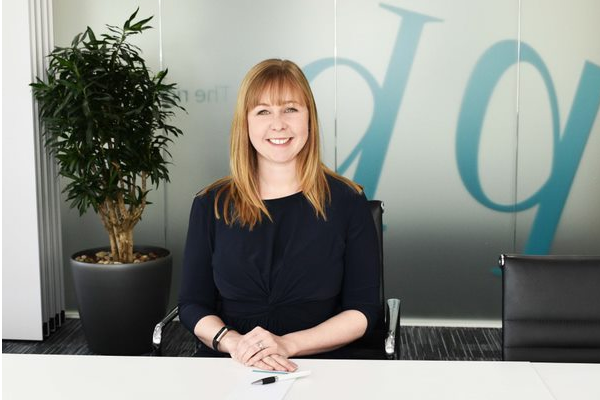An introductory guide to cloud accounting
Technology is changing the way businesses capture financial records and the efficiency in which it can be done, significantly reducing the amount of manpower required to produce management accounts and key performance information. We have put together an introductory guide to the latest in cloud accounting for those that are perhaps still unsure about what it is and why it’s valuable to their business.
During the economic downturn resulting from the COVID-19 outbreak, a business’ understanding of its trading performance and cash flow management has never been more important. Whether you are trying to access the Government lending schemes or simply need to ensure the continuity of your business, those with agility in their accounting systems are at an advantage.
Cloud accounting
Cloud accounting, in its bare bones, is the processing, storing and accessing of a business’ accounting data on the internet instead of your computer’s hard-drive – nothing too exciting then? The exciting part is the additional functionality that cloud-based accounting packages offer through integration with other cloud-based systems, which can completely transform the way you run your business and the way you monitor its performance.
In our experience, the majority of early-stage businesses start out utilising technology to manage their accounting and financing function, largely as a result of starting a business when cloud accounting is already mainstream. However, it is the more developed businesses that are facing the challenge of transitioning their traditional systems over to digital platforms. Nevertheless, the technology is still relatively new to everyone and developing at a high rate, so, even those already using the technology may not be utilising to its full capability.
With the introduction of Making Tax Digital (MTD) for all sole traders and landlords with an income of £50,000+ beginning in April 2026, and reducing to £30,000+ in April 2027, all sole traders, landlords and businesses will be legally required to report through appropriate cloud systems.
The efficiency gains are enormous for both the business and its suppliers and customers. We’re getting away from the idea that finance is a separate, post-event operation. Instead, integration within the day-to-day running of any business, speed and frequency of reporting, resulting in improved financial governance is the focus of the day. Historically, timely accurate management recording was reserved for larger businesses; now, any business can afford to produce monthly, detailed reports with records updated on a per transaction basis.
Be mindful, however, that there are those selling the idea that this is ‘real-time’ accounting. While businesses can view sales trends in real-time, e.g. from sales reps updating their sales numbers throughout the day, in reality, we would advise away from relying on ‘in time’ information until the month-end, when all data has been reconciled and adjusted. Nevertheless, being able to track data in ‘real-time’ does enable business owners to identify issues, e.g. cash-flow, lower sales volumes, and take measures to mitigate these before the month-end.
The software
Your accounting software is an engine to which you can connect data in and out of the business. The software itself is fairly straight forward; like an iPhone without any apps on it, it doesn’t need to do a lot, but by integrating your own bespoke applications it becomes the most valuable tool to you and your business. With cloud software, you can connect near enough anything else on the internet to it, including banking, credit cards, receipts & payments and expenses to have seamless data flows.
- Online banking – systems can connect to the bank and, with the developments in open banking, a business can potentially control making payments to/from any bank account through your accounting platform. If the system is set up properly, businesses can also set up triggers to notify management if cash goes below a certain point, in a particular bank account.
- Credit cards – when anyone spends money on a business credit card, simply take a photo of the receipt which matches with the credit card purchase and it will feed into the platform.
- Employee expenses – where employees are submitting expense claims they can simply take a photo of the receipt and upload this for approval – approval processes can be set within the software and automated.
- Online sales – online storefronts which enable direct integration with the accounting side and also stock management to bring across sales transactions and reflect stock movements.
- OCR technology – there are online systems available to capture invoices either through scanning or PDF reading which then extract the relevant information to import into your accounting platform.
- Supplier Payments – if a business has suppliers with online accounts, businesses can now connect to those to download invoices directly, as well as automating the processing of payments to suppliers.
- Data output – it’s not just inputs, businesses can then push this data to other applications, for forecasting, cash flow management or bank tracking (for lending purposes).
Other potential benefits of cloud accounting
1. Access your accounts anywhere
With improved mobile data speeds and smartphone apps, there’s no need for you to be rooted to your desktop. Providers such as Quickbooks Online and Xero allow you to access your accounts from smartphones, tablets and laptops so you can keep on top of your finances on the move and through the cloud.
2. Automate the posting of your bank data
Many of the cloud solutions now support bank feeds so that your bank transactions can automatically download directly to your account. This reduces processing time and eliminates data entry errors. It can also post the transaction directly for you.
3. Less dull data entry
Software add-ons such as ReceiptBank can automate the data entry of supplier invoices. Instead of keying them all in one by one, you can simply scan them in or take photos and the app will do the rest for you.
4. Straight forward payments at the click of a button
Some cloud solution providers integrate online payment options when you email across invoices. This means that when your client receives the email they can simply click an option to ‘Pay Now’.
5. No more need for storage
Because everything is stored electronically and offsite, you don’t need to keep boxes of records in drawers. Sales invoices are automatically retained on the system, and you are also able to scan in copies of purchase invoices.
6. Customise it to your business
As well as the main program, there are a wide range of extra add-ons. These add-ons can include credit control, bespoke reporting, simpler invoicing solutions, stock management, online invoice payments along with many more. Add-ons are also usually free to use for the initial period, and can therefore be trialled without commitment.
7. Work where you want to
Without the need to access the data on a specific PC, bookkeepers can do their work from their own office, the local coffee shop or at home. With the pace of modern life, it’s essential that the accounts and management information is accessible anywhere.
8. Secure with no worries
The data is held securely and encrypted on an offsite server, without the need for you to worry about your own in-house data integrity.
9. Ongoing easy support
As your data is stored remotely, any queries can be looked at easier by your provider as they will have their own ‘adviser’ login to your account.
10. Program updates as and when
You will always be using the most up to date version of the software, meaning you won’t need to buy yearly programs updates.
11. Time-saving data migration
Users of Sage Accounts can seamlessly migrate their data to Quickbooks Online and Xero.
What software is best?
There is no ‘best’ software on the market; the best software will be determined by the needs of the business. Before deciding which software is best for your business reporting needs, we advise that you undertake a systems review. The right system and additional integrations (APIs) will depend on the sector, business size, business model and the nature of your revenues.
Xero is the market-leading software due to its broad appeal and connectivity to other integrating applications. However, there are some industries where Xero has limited value, given that it was ultimately designed for the SME end of the market. It is also unsuitable for businesses that generate revenue from high volume, low-value sales. In that instance, other packages may be a better fit.
Other well-established cloud software’s include Quickbooks, Sage and Freeagent, but there are numerous other packages with new entrants to the market all the time.
Cloud accounting software should not be mistaken as ‘Artificial Intelligence’ or ‘Machine Learning’. Instead, we refer to it as ‘intelligent automation’, the systems are starting to analyse data and learn when things ‘don’t look quite right’ to flag to the user. However, it is only as good as the information input. Therefore, telling the system the right information in the first place is important. Setting up the right system, in the right way, is the most important first step to take – if you’re not sure what that is, then consider a systems review.
Price Bailey is an established accountancy practise, supporting businesses with the normal compliance needs, but also helping to navigate the latest cloud accounting software, providing training and helping clients to get the most out of the software and tools available. Where requested, we also can provide clients’ with a completely outsourced accounting function – using our services – which is akin to having a ‘Virtual Financial Controller’.
If you’re struggling to manage and monitor performance with your current systems and unsure what to do, or if you’re not yet utilising cloud accounting software and don’t know where to start, our advice is to request a review of your current systems in order to understand the best solution for the long-term success of your business. Please contact Lee Sharman for further information or complete the form below to contact one of our experts.
Price Bailey has specialists that are all Xero and Sage accredited. We also have a team of specialists Quickbooks qualified, and we are all used to working with most other packages.
[This article was updated and reviewed 20 December 2023.]
We always recommend that you seek advice from a suitably qualified adviser before taking any action. The information in this article only serves as a guide and no responsibility for loss occasioned by any person acting or refraining from action as a result of this material can be accepted by the authors or the firm.
Have a question about this post? Ask our team…
We can help
Contact us today to find out more about how we can help you






